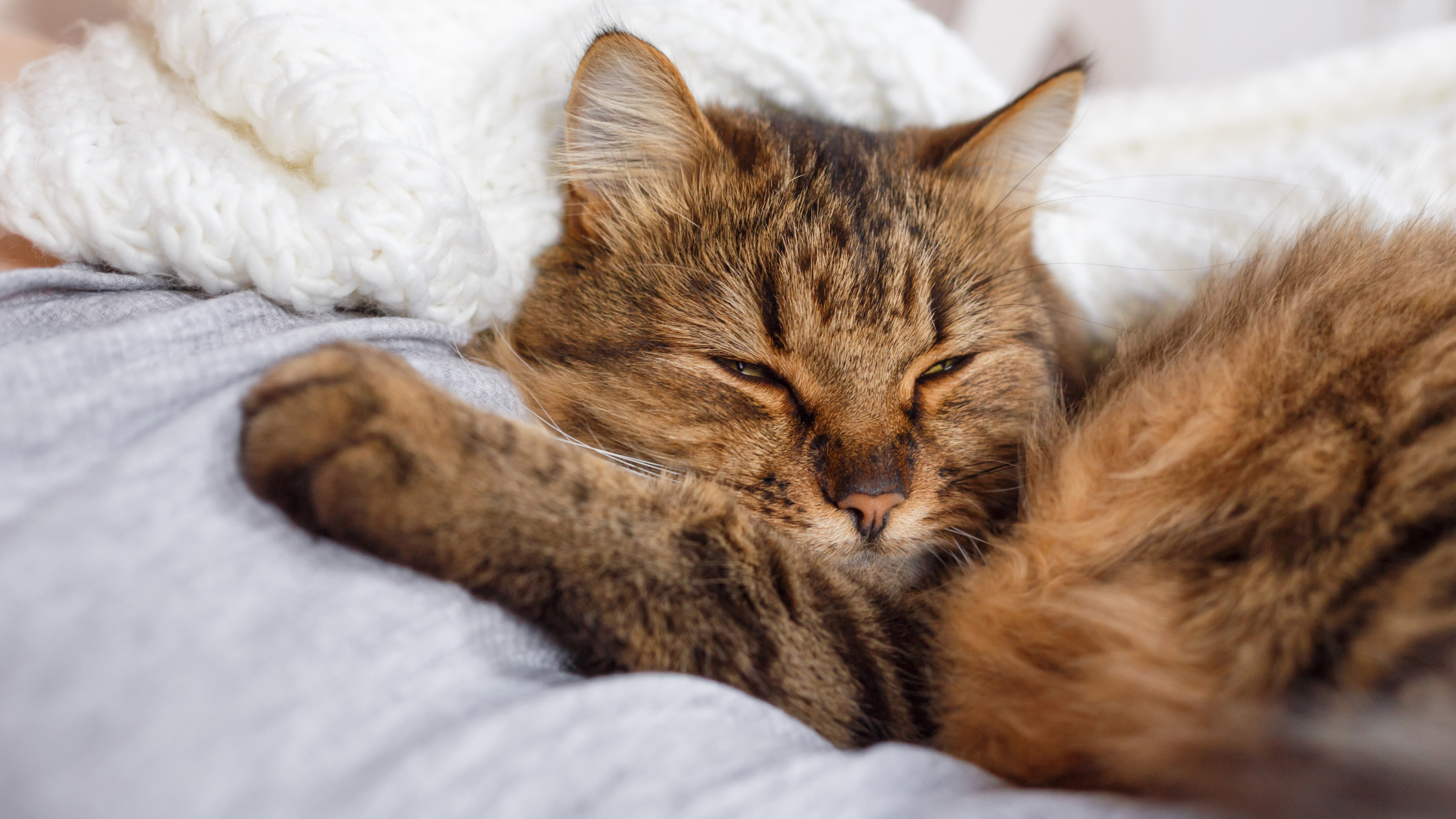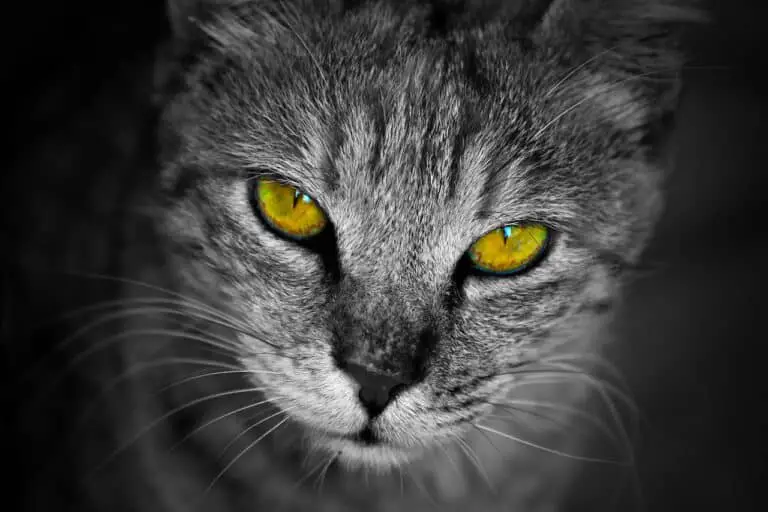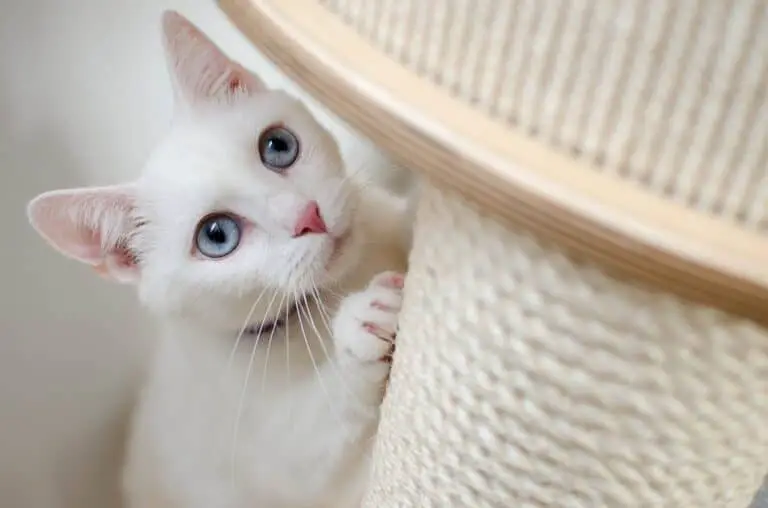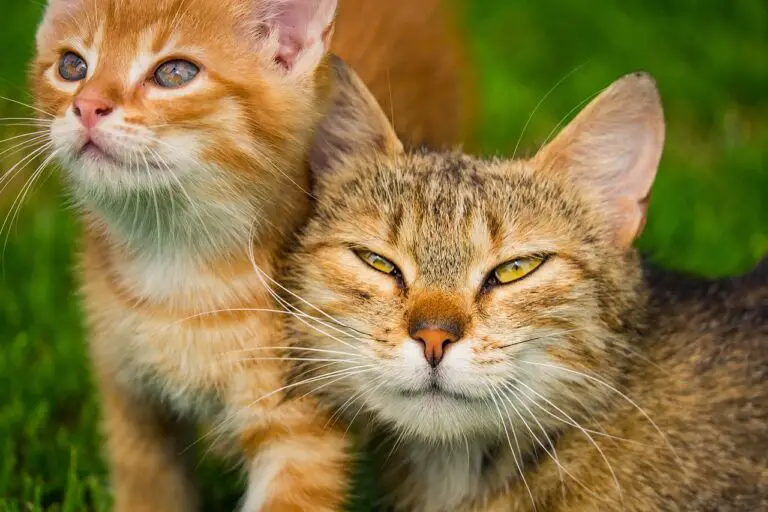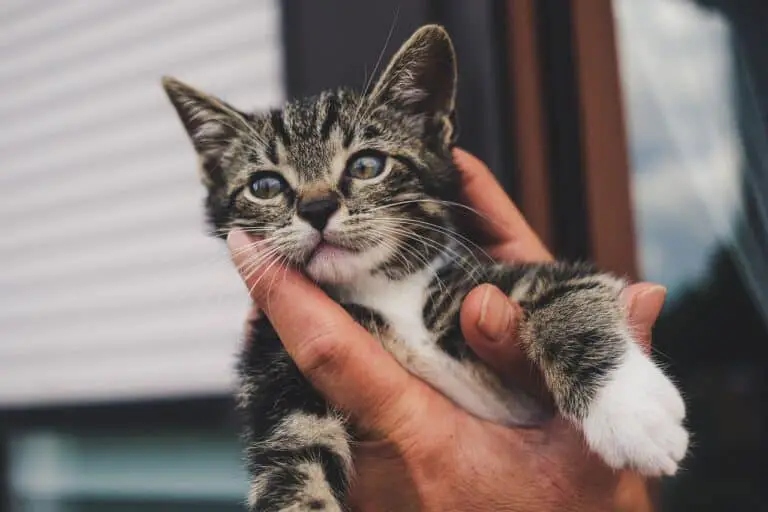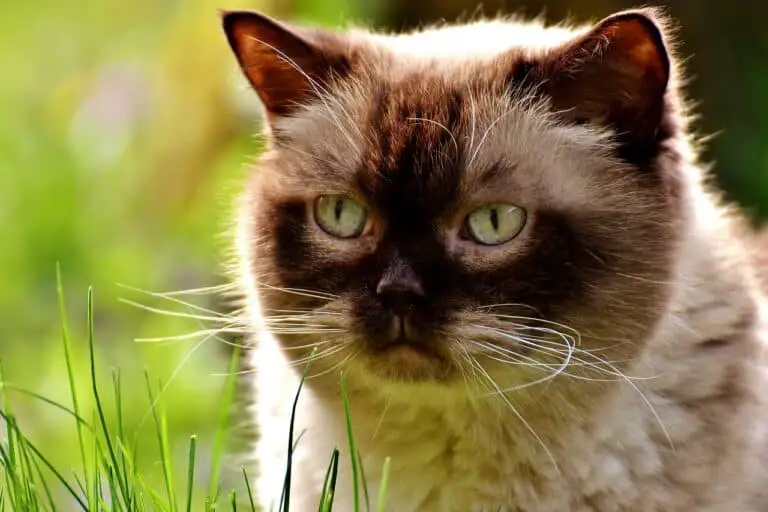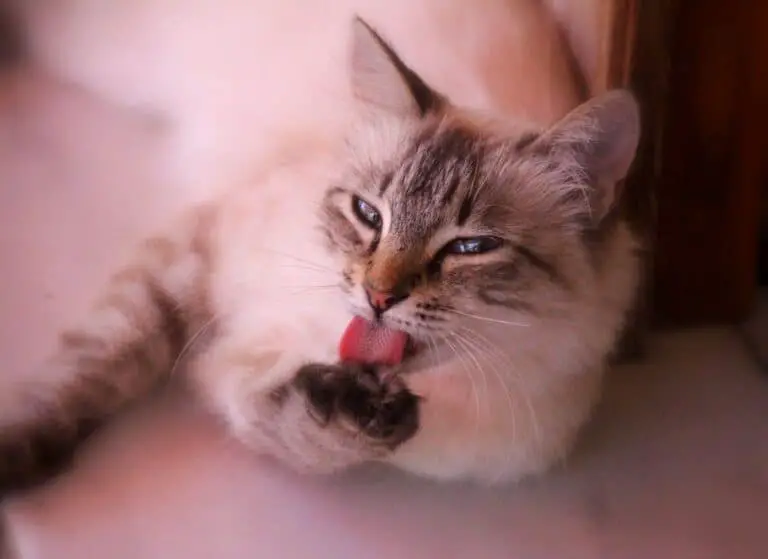WHY IS MY CAT SO CLINGY? 7+ SIGNS YOUR CAT LOVES YOU TOO MUCH!
Why is my cat so clingy? While many cat owners complain about their pets'” indiendence ” and “selective hearing,” others complain about their cats being too clingy. Well, that can happen too.
Cats can be clingy because of their personality and breed, but they can also become clingy if major changes happen in their environment, if they have health issues, if they are pregnant or scared if they feel too lonely, and have separation anxiety.
But there is more.
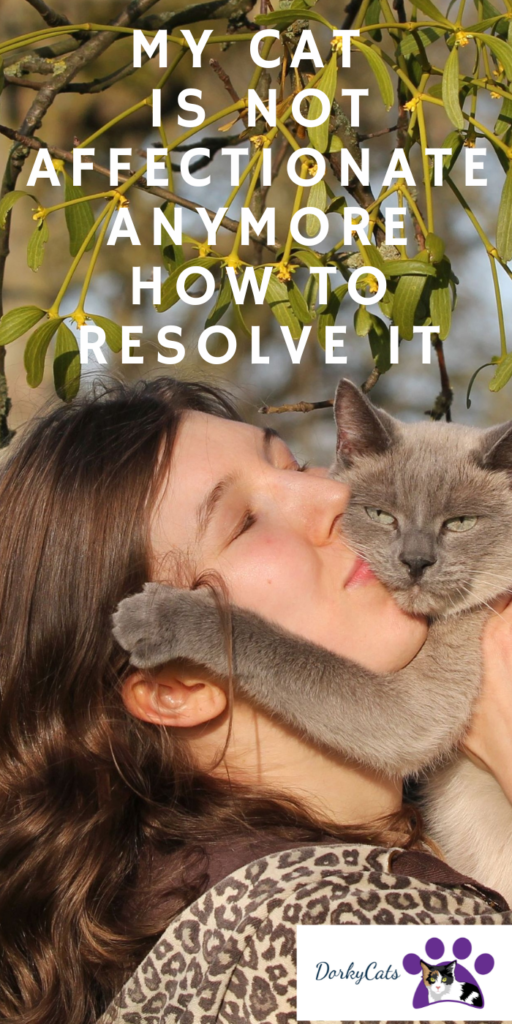
WHAT ARE THE SIGNS THAT A CAT IS CLINGY?
Recognizing the signs of a clingy cat is essential, so a cat owner can take action if necessary. On the other hand, many cats can be affectionate because of their sweet personality or if they belong to a generally affectionate breed.
But when the affection is obsessive, one could say that a cat is clingy. There are several signs that your cat may be clingy:
1. YOUR CAT IS ALWAYS FOLLOWING YOU AROUND
Clingy cats will often follow their owners from room to room and may meow or paw at them to get attention. To some degree is normal for a cat to follow their owners. For example, when you go to the bathroom, chances are that your cat is there.
Many cats like to be in the room with their owners most of the time. But there are always times when cats mind their own affairs. If your cat is following you obsessively, it is a sign that your can is clincy.
2. YOUR CAT ALWAYS WANTS ATTENTION
Clingy cats may become vocal and paw at their owners for attention or even climb onto their laps or shoulders constantly. Pet owners will experience these phenomena with their cats always.
3. YOUR CAT IS VISIBLI STRESSED WHEN YOU LEAVE
Discomfort when left alone: Cats clingy may become anxious or distressed for even short periods of time and can develop separation anxiety.
Separation anxiety in cats is when a cat becomes distressed and anxious when separated from their owner or primary caregiver. Cats are social animals, and they form strong attachments with their owners.
When the owner leaves the cat alone, the cat may feel insecure and become anxious.
Symptoms of separation anxiety in cats can include:
- Excessive meowing or crying
- Destructive behavior (such as scratching or chewing on furniture)
- Inappropriate elimination outside of the litter box
- Loss of appetite
- Excessive grooming
- Some cats may also become depressed or lethargic when separated from their owner.
Several factors can contribute to separation anxiety in cats, including changes in the cat’s routine or environment, a traumatic experience, or a lack of socialization.
If you suspect that your cat is experiencing separation anxiety, it is important to speak with your veterinarian to rule out any underlying medical issues and to develop a treatment plan.
4. YOUR CAT SLEEPS WITH YOU
Clingy cats may insist on sleeping with their owners and become upset if they are shut out of the bedroom.
5. EXCESSIVE LICKING AND GROOMING
Some cats may become clingy and engage in excessive grooming behaviors, such as licking or grooming their owners.
WHY IS MY CAT SO CLINGY?
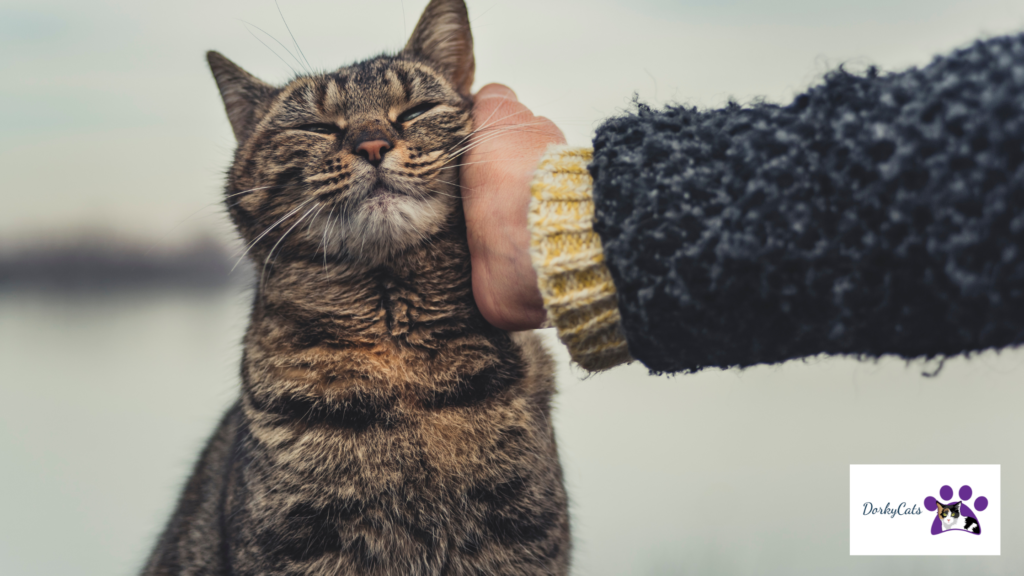
If you recognize that your cat presents most of the above signs, you might be dealing with a clincy cat. Cats can display clingy behavior for a variety of reasons. Some common reasons for clinginess in cats include:
1. MEDICAL PROBLEMS
Sometimes, clingy behavior in cats can be a sign of an underlying medical issue. For example, hyperthyroidism, kidney disease, or arthritis can cause your cat to seek more attention and comfort from you.
2. AGING
Older cats may become more clingy as they age, particularly if they are experiencing health issues or feeling more vulnerable.
3. THE BREED OF YOUR CAT
Some cat breeds, such as Siamese and Burmese, are known for being more affectionate and clingy than others.
4. YOUR CAT IS OFTEN ALONE
Cats are social animals who can become clingy if they feel lonely or isolated. If you have a single cat, they may crave more social interaction and playtime.
5. YOUR CAT IS BORED
A lack of mental and physical stimulation can also lead to clingy behavior in cats. If your cat doesn’t have enough toys or activities to keep them occupied, they may become more dependent on you for attention and entertainment.
6. PAST BAD EXPERIENCES
Cats that have experienced past trauma or abandonment may become clingy to seek security and reassurance from their owners.
In general, providing your cat with plenty of love, attention, and a stimulating environment can help reduce clingy behavior.
WHY IS MY FEMALE CAT SO CLINGY ALL OF A SUDDEN?
Female cats can be subject to becoming clingy because of their hormonal changes. But it i not the only reason.
If your female cat has suddenly become clingy, there may be several reasons for this. Here are some possibilities to consider:
- Illness or Pain: Cats may become clingy when they are not feeling well or experiencing pain. If your cat is normally independent and suddenly starts seeking your attention, it may indicate something is wrong.
- Hormonal Changes: If your cat is not spayed, her hormones may influence her behavior. Female cats can go into heat every few weeks, which can cause them to be more affectionate than usual.
- Environmental Changes: Any changes to your cat’s environment or routine can cause her to become more clingy. For example, if you’ve moved to a new house, brought home a new pet, or started a new job, your cat may feel stressed and seek comfort from you.
- Age: As cats age, they may become more dependent on their owners for comfort and security. If your cat gets up there for years, her clingy behavior may indicate her feeling vulnerable or anxious.
WHY IS MY CAT SO CLINGY AT NIGHT?
At night cats know that you are going to relax and sleep, and for them is a perfect moment to get some undivided attention and love from you. At night the house is quiet, and they know by experience that you are prone to give them some attention.
Cats may become more clingy at night if they seek their owners’ attention, affection, or playtime. In addition, if your cat is hungry, it may become more vocal and demanding at night, mainly if they are used to being fed at a certain time.
Cats may also become more clingy at night if they feel lonely or isolated. If your cat is the only home pet, it may crave more social interaction and playtime.
In addition, cats are naturally crepuscular, which means they are most active during dawn and dusk. Therefore, if your cat is used to being awake at night, it may become more demanding of your attention.
You can also try providing them with a cozy bed or hiding spot in a quiet area of the house to help them feel more secure and comfortable at night.
WHY IS MY CAT SO CLINGY AFTER BEING SPAYED?
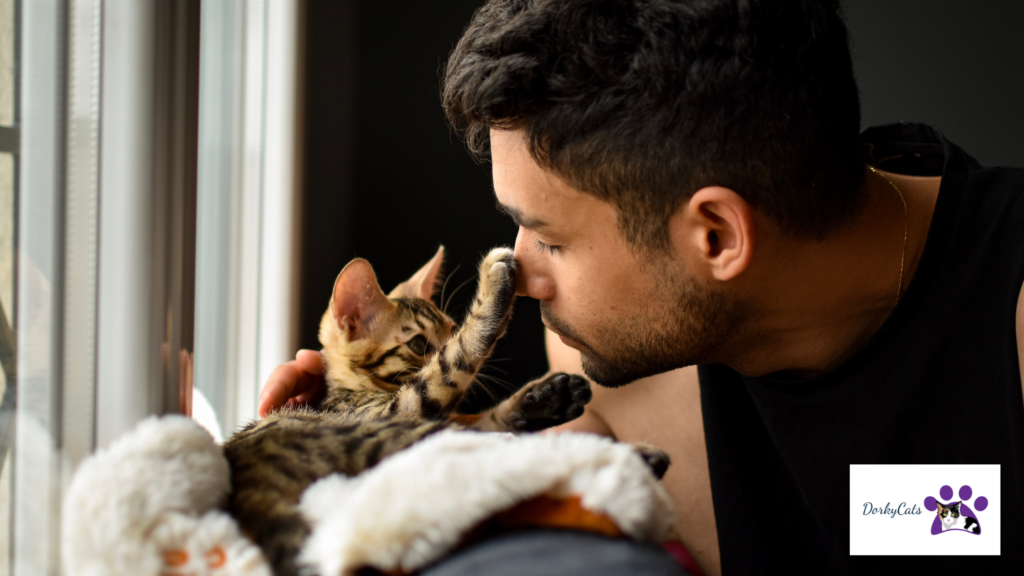
It’s not uncommon for cats to become more affectionate or clingy after being spayed. Here are some possible reasons why your cat is acting this way:
Spaying removes the ovaries, which means that your cat’s hormones will change after the surgery. These hormonal changes can affect your cat’s behavior and may cause her to be more affectionate.
Spaying is a surgical procedure that can be uncomfortable for cats during recovery. Your cat may seek comfort from you during this time and may become more affectionate or clingy.
In addition, the surgery and recovery process can be a major upheaval. Your cat may be seeking comfort and reassurance from you during this time, mainly if they were used to receiving a lot of attention and affection before the surgery.
Finally, your cat may become more bonded to you over time. For example, the spaying process can be a bonding experience between you and your cat, and she may be seeking more attention and affection from you as a result.
WHY IS MY CAT SO CLINGY WHILE I AM PREGNANT?
Cats are pretty smart and have an impressive sense of smell.
When a woman is pregnant, her body undergoes significant hormonal changes. These changes can cause her body to produce different scents, which her cat may pick up. In addition, the cat may become more affectionate and clingy due to these changes.
Pregnancy effect also the behavior and routines. For example, you may spend more time at home or have changes in your sleep schedule. These changes in routine can affect a cat’s behavior and may cause her to become more clingy.
In addition, pregnancy can cause women to become more sensitive to their surroundings. This increased sensitivity can cause a woman to become more aware of her cat’s behavior and may make her cat seem more clingy than usual.
Some cats may become more protective of their owners when they are pregnant. They may become more clingy to keep their owners safe and protect them from harm.
WHY IS MY CAT SO CLINGY AFTER GIVING BIRTH?
It’s common for cats to become more affectionate and clingy after giving birth.
After giving birth, a mother cat’s natural instincts kick in, and she becomes very protective of her kittens. She may become more clingy to her owner as a way to seek additional protection and support.
Giving birth can cause significant hormonal changes in a cat’s body. These changes can affect her behavior and may cause her to become more affectionate and clingy.
Additionally, giving birth can be a stressful experience for cats. As a result, your cat may become more clingy as a way to seek comfort and reassurance during this time.
HOW CAN I MAKE MY CAT BECOME LESS CLINGY?
It is not an idea to reject or send away your cat when he wants to receive affection; it can create stress and anxiety. But if you take things on a gradient, you can helo your cat to be more independent.
If your cat is overly clingy, there are a few things you can do to help them become more independent and less reliant on your constant attention:
1. PROVIDE PLENTY OF PLAYTIME AND EXERCISE
A tired cat is a contented cat. Providing your cat with plenty of physical and mental stimulation can help them burn off excess energy and feel more relaxed when you are not around.
Interactive toys and puzzles can help keep your cat mentally engaged and stimulated even when you are not around.
2. ESTABLISH A ROUTINE
Setting up a consistent routine for your cat can help them feel more secure and less anxious. Try to stick to a regular feeding schedule and playtime routine.
Creating a particular area in your home where your cat can retreat can help them feel more secure and less anxious when you are not around.
3. GRADUALLY INCREASE ALONE TIME
Gradually increasing the amount of time your cat spends alone can help them adjust to being without you. Start with short periods and gradually increase the length as your cat becomes more comfortable.
It’s important to note that some cats may be naturally more clingy than others and that some cats may have underlying anxiety issues that need to be addressed by a veterinarian or animal behaviorist.
4. GET A SECOND CAT
Getting a second cat can be a good idea to help your cat socialize with another pet and have him play and spend more time independently from you. But you have to be careful to find a good match.
If your cat’s clinginess is causing significant disruptions to your daily life or if you are concerned about their well-being, it may be a good idea to consult with a professional.
WHAT IS THE MOST CLINGY CAT BREED?
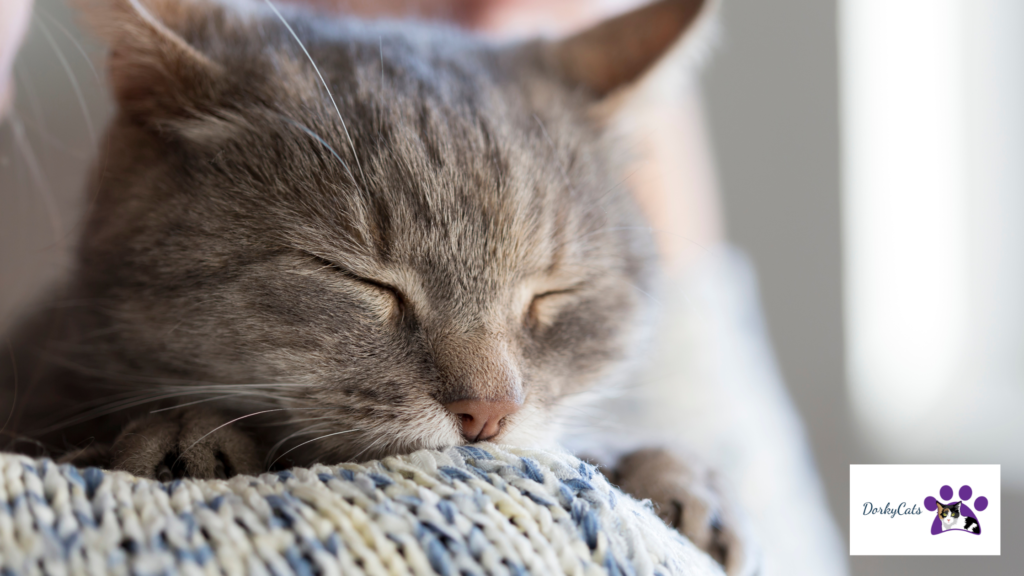
It is difficult to determine which cat breed is the most clingy, as individual cats within a breed can vary greatly in their temperament and level of attachment to their owners.
However, some cat breeds are known for being more affectionate and people-oriented than others. Here are a few cat breeds that are known for being particularly friendly and social with their owners:
- Siamese cats are known for being very vocal and demanding attention. However, they are intelligent and curious cats that form strong bonds with their owners.
- Burmese cats are often described as dog-like in their behavior, as they are very social and love to follow their owners around. They are also known for being very affectionate and playful.
- Ragdoll cats are known for their relaxed and affectionate nature. They often seek out human company and love to be held and cuddled.
- Sphynx cats are hairless and require much attention and care, which may contribute to their clingy nature. However, they are known for being very affectionate and loving with their owners.
- Maine Coon cats are known for being friendly and sociable. They are often described as “gentle giants” due to their large size and gentle demeanor.
It’s important to remember that each cat has their own personality and temperament and that breed characteristics can vary widely. Even within these breeds, there can be cats that are more independent and less clingy.
FREQUENTLY ASKED QUESTIONS
Can your cat be too attached to you?
Yes, a cat can become too attached to their owner, to the point where it becomes problematic for both the cat and the owner. This level of attachment is often referred to as separation anxiety or over-attachment.
When a cat is too attached to their owner, it may become overly clingy and demand constant attention, which can be exhausting and disruptive for the owner. In severe cases, the cat may become anxious or even distressed when the owner is absent, leading to destructive behavior or inappropriate elimination outside the litter box.
Why is my cat so affectionate to only me?
Your cat is affectionate to you only because he sees you as the primary caregiver and has bonded with you. If you spend the most time with your cat or have been their primary caregiver since they were kitten, they may have formed a strong bond with you.
Can cats be obsessed with their owners?
Cats can become very attached to their owners, to the point where they may display behavior that can be described as obsessive or overly attached. This level of attachment is often referred to as separation anxiety or over-attachment.
When a cat is obsessed with their owner, it may become overly clingy and demand constant attention. They may follow their owner around the house, meow excessively or paw at them, and refuse to leave their side.
In some cases, a cat’s obsession with its owner can be a sign of underlying health issues, such as hyperthyroidism or cognitive dysfunction, which can cause increased anxiety and agitation.

